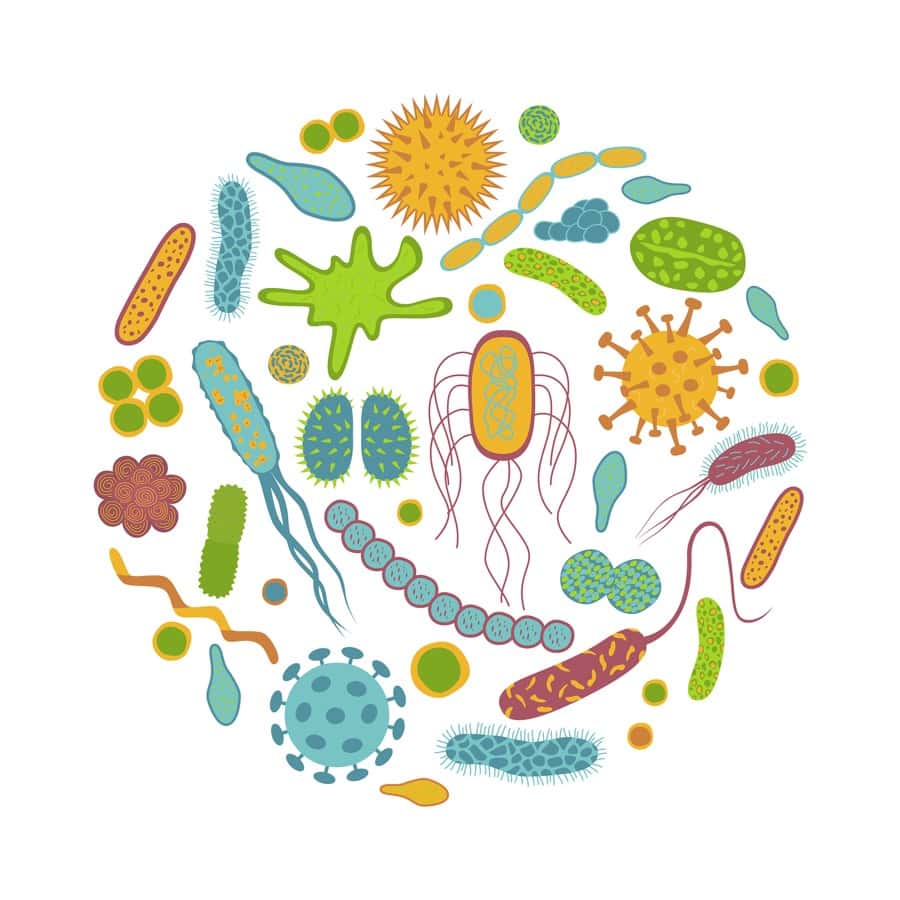
We have been hearing increasingly about connections between the brain and the gut microbiota. Research from the Cleveland Clinic has demonstrated two fascinating links. First, scientists found that the denizens of the digestive tract impact the severity of strokes. The types of microbes in the intestines also affect how much impairment results (Cell Host & Microbe, June 16, 2021). Just recently, they have uncovered a link between gut microbes and the risk for Alzheimer disease.
What’s the Story on Gut Microbiota?
Certain microbes produce trimethylamine N-oxide (TMAO) when they metabolize red meat and choline from animal sources. This compound reduces the flexibility of the lining of the blood vessels (Hypertension, July 2020). Moreover, studies in humans show that high levels of TMAO in the blood indicate a higher risk of stroke.
In animal research, intestinal microbes that produce more TMAO made experimental strokes more serious. The researchers adjusted the gut microbiota of the mice with fecal transplants. Higher levels of TMAO were associated with more brain damage and long-lasting functional deficits. In addition, these researchers identified the microbial gene responsible, cutC.
Dietary Changes to Shape the Microbiota:
Shifting the diet to reduce TMAO, especially limiting eggs and meat, also reduced stroke severity in this study. In light of these animal data, the scientists suggest a plant-rich diet to lower TMAO and help protect the brain from strokes.
Another reason to aim for optimal gut microbiota balance also highlights the brain. A recent review found that “dysbiosis”–microbe imbalance–is associated with a higher chance of Alzheimer disease (Frontiers in Aging Neuroscience, May 28, 2021).
How Metabolites Affect the Risk of Alzheimer Disease:
In a recent study, scientists at the Cleveland Clinic used artificial intelligence tools to sniff out relationships between hundreds of metabolites of gut microbes and specific receptors in the brain (Cell Reports, May 28, 2024). They needed the artificial intelligence to sort out more than a million connections between metabolites produced by gut microbes and sites in the brain known as GPCR.
These G-protein-coupled receptors interact with a particular metabolite called agmatine. This analysis demonstrates that agmatine can help protect against damage associated with Alzheimer disease. The GPCR it activates seems to reduce the buildup of tau, a toxic substance in the brain. We don’t yet know how how people might be able to increase levels of this metabolite if they wished to. Consequently, we’re hoping that the researchers at the Cleveland Clinic will keep looking into this question.
Learn More:
If you would like more information about how to feed your gut microbiota properly, you may wish to listen to our interview on the topic. Drs. Justin and Erica Sonnenburg describe how to care of those important microbes that help keep us healthy. It is Show 1156: How the Microbiota in the Good Gut Takes Care of You.
Veggies, fruit and whole grains are rich in fiber. You can learn more about the importance of both soluble and insoluble fiber in our interview with Dr. Robynne Chutkan. You’ll find it in Show 1115: How You Can Conquer Constipation. Fortunately, keeping your microbes happy and healthy has many rewards for you.
Citations
- Zhu W et al, "Gut microbes impact stroke severity via the trimethylamine N-oxide pathway." Cell Host & Microbe, June 16, 2021. DOI:https://doi.org/10.1016/j.chom.2021.05.002
- Brunt VE et al, "Trimethylamine-N-Oxide promotes age-related vascular oxidative stress and endothelial dysfunction in mice and healthy humans." Hypertension, July 2020. DOI: 10.1161/HYPERTENSIONAHA.120.14759
- Wu S et al, "Roles and mechanisms of gut microbiota in patients with Alzheimer's Disease." Frontiers in Aging Neuroscience, May 28, 2021. DOI: 10.3389/fnagi.2021.650047
- Qiu Y et al, "Systematic characterization of multi-omics landscape between gut microbial metabolites and GPCRome in Alzheimer’s disease." Cell Reports, May 28, 2024. DOI:https://doi.org/10.1016/j.celrep.2024.114128

